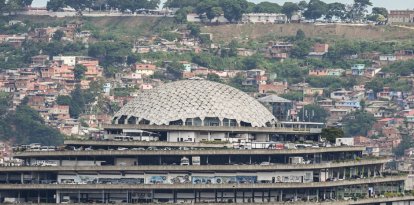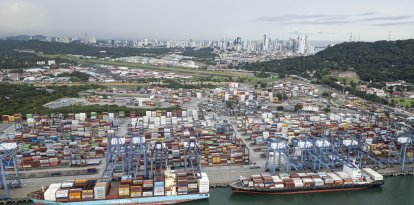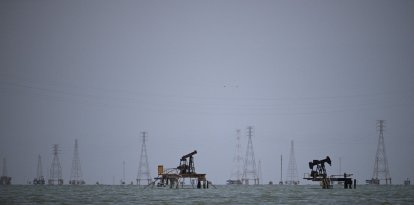French farmers begin the 'siege of Paris': What do they want? Why have they expanded throughout Europe?
Environmental measures, inflation and a "moral crisis" are some of the reasons that pushed farmers to continue protesting.
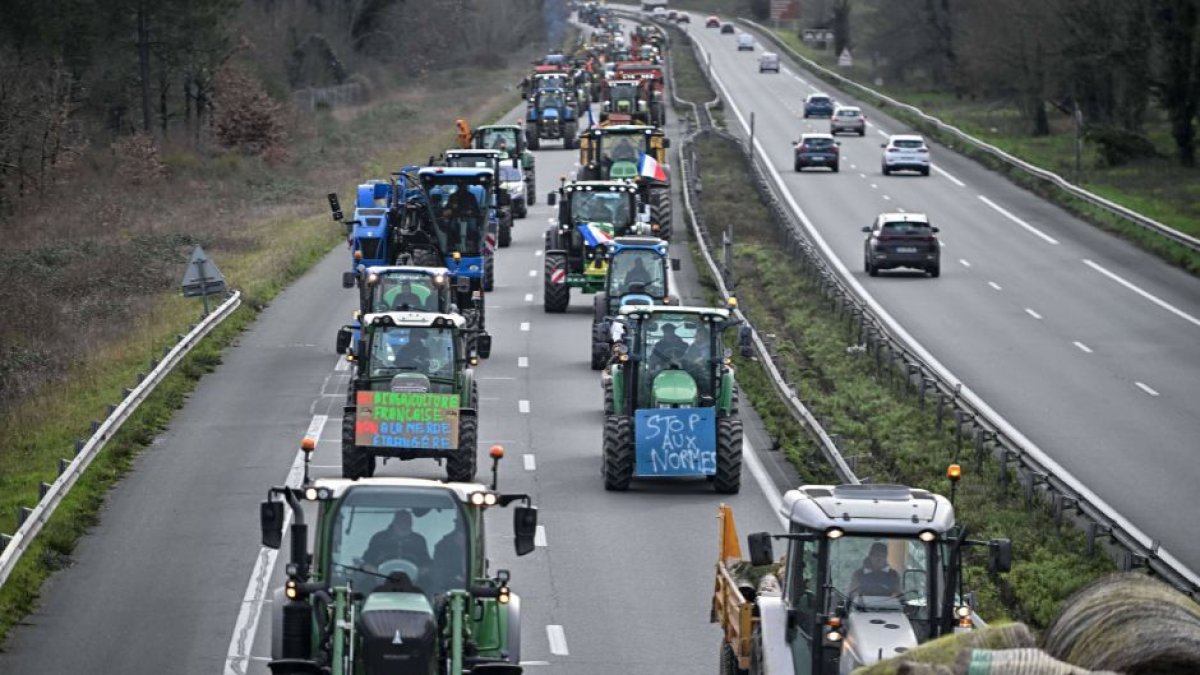
(Cordon Press)
The goal is Paris. After days of protests, the farmers who have been demanding Emmanuel Macron took things up a notch this Monday: Blocking roads around the capital so that the protests are noticeable throughout the city.
"We are going to block the main highways around Paris," warned the president of the National Federation of Farmers' Unions (FNSEA, for its acronym in French) this Monday on the morning radio program RTL Matin. "When you are far from Paris, the message is not heard," he added before emphasizing that their objective was not to "starve the French." "(On the contrary, we) have the honor of feeding them."
In total, they blocked off eight roads around the French capital, according to local newspaper Le Monde. The same outlet reported that Interior Minister Gérald Darmanin asked law enforcement officers to act with "moderation." Darmanin has asked the 15,000 gendarmes and police deployed not to intervene in the areas closed by the protesters but to work to make them safe.
One of the contentious points will be the Rungis International Market. Known as "the belly of Paris," it is described as the largest market in the world in the fresh produce category. The Rural Coordination Union called on its members to come in from the outskirts to Rungis on Tuesday. Darmanin pointed out the market as a red line that protesters should not cross, as well as other supply points and airports.
What do farmers want?
The farmers have several urgent demands. "We have 140 measures before the government that must be addressed so that agriculture can move forward," said the president of the FNSEA. "We need measures for all sectors, we will need legislation to change."
One of the most criticized aspects of agricultural legislation is environmental regulations, which farmers claim harm them more than anyone else. There seem to be two culprits for this unrest: the French government and the European Union (EU). The unions FNSEA and Jeunes Agriculteurs (translated as Young Farmers) are asking to reverse the "loss of food sovereignty" and to review the "very philosophy of the Green Deal," which aims to achieve climate neutrality in 2050.
The unions claim that "the crisis is moral." Although they are asking for several specific measures, they keep pointing out that the European ecological plan is riddled with contradictions:
They are also asking for better compensation for their work. They claim that both inflation - more than 3% year-on-year as estimated in December and anti-inflation measures hurt their bottom line. The official plan to lower prices in stores would have reduced their income, while production costs would have done nothing more than increase.
They are demanding a tax reduction. They also want the government to reduce the number of agriculture regulations. They oppose the agreement between the EU and Mercosur. They are on the same page as the government on this topic. They also oppose imports from Ukraine, which the European Union has been facilitating since Russia invaded the country.
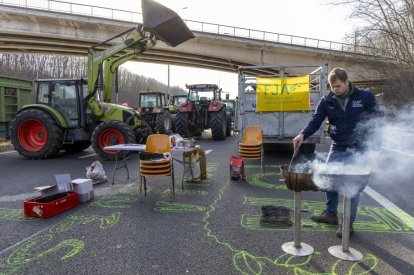
@CmdtPoliciaEc - 2024-01-29T205349.210
At the heart of the protests lies the feeling that there is a disconnect between the French who work in the fields, what they know, need and want, and the regulations promoted by the authorities.
"It is necessary to review the overall approach to put the sector sustainably on the right path," Jeunes Agriculteurs president Arnaud Gaillot wrote in L'Humanité on Sunday. "Let us not make mistakes in the solutions, otherwise, there is no doubt that we will regret it bitterly."
This Monday Gaillot attacked French Prime Minister Gabriel Attal. The new minister criticized neighboring countries and announced a series of measures before the weekend to try to appease farmers. This included simplifying administrative procedures and the provision of subsidies for organic farming. It wasn't enough:
In France and Europe
Farmers are also outraged in Belgium, Germany, Poland, Romania and the Netherlands.
In Spain, on the border with France, local media reported several attacks on trucks transporting cargo to neighboring countries. Five Spanish vehicles with vegetables were allegedly broken into and looted near Brussels. Another that was transporting wine to Germany was emptied, as seen in videos broadcast by the Spanish press:
Italy has not been spared from the protests spreading across the continent. There have been protests about the restrictive policies of the European Union and its effect on traditional agricultural organizations, according to Corriere della Sera.
Claims against environmental policies and excess regulations seem to be a common denominator in the protests, regardless of whether they are taking place in Rome, Brussels or Paris. It remains to be seen how this discontent will affect the upcoming European Parliament elections in early June.













